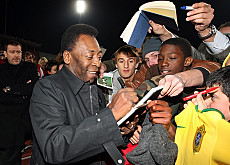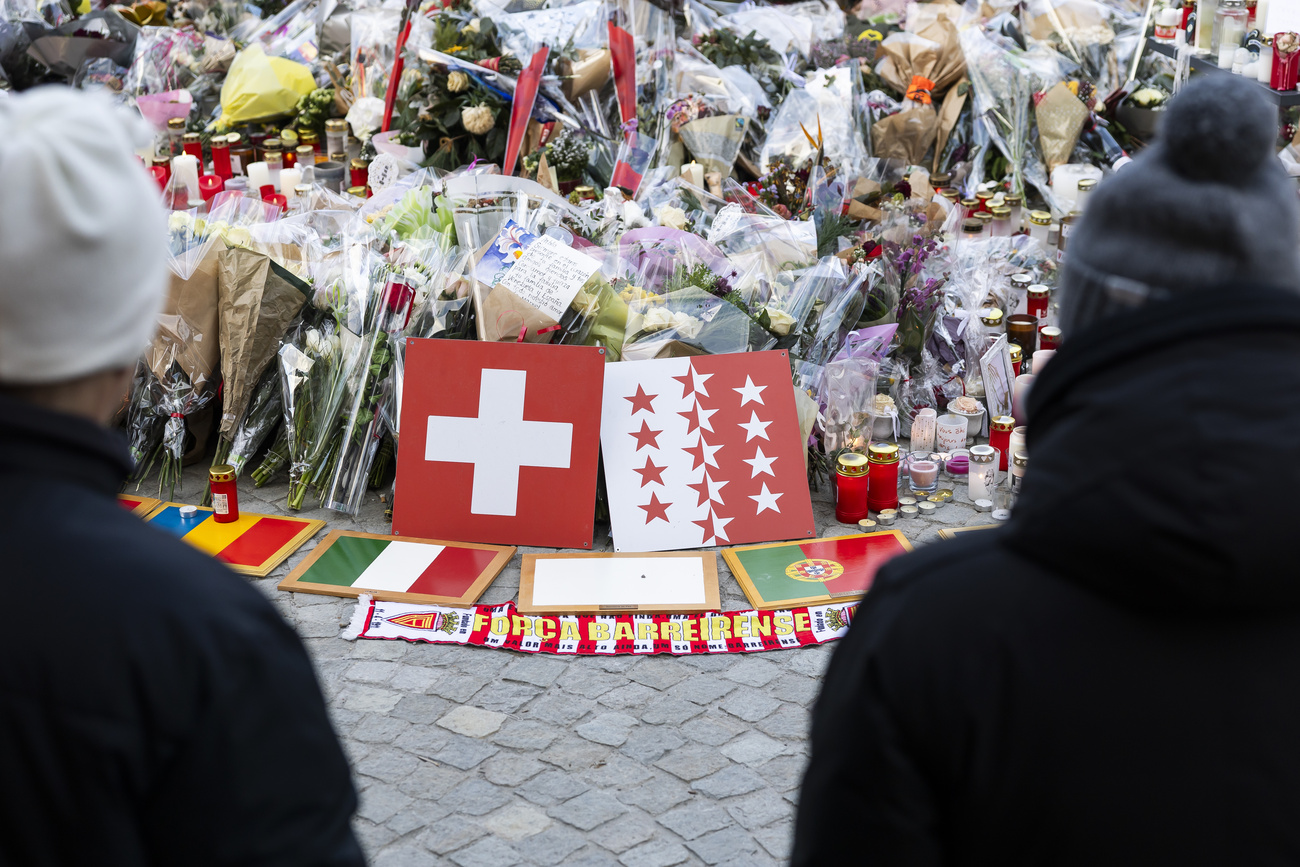
Pelé nurtures Brazilian talent in Lausanne

Pelé, one of the greatest footballers of all time, talks to swissinfo about his Lausanne football academy and a possible future role within the United Nations.
The football legend was in the Swiss lakeside city last week to promote Project Pelé Campus, a new training scheme at second-division club Lausanne-Sport to turn Brazilian teenage talent from deprived backgrounds into “citizens and footballers”.
In a ten-year partnership, the local club will become the European gateway for Pelé’s football academy combining football training and education for young up-coming players from Sao Paolo state in Brazil.
Numerous Brazilian players move abroad to try their luck with foreign teams. Most of them are from deprived backgrounds and do not have the knowledge to manage their careers while abroad.
Pelé, who signed for Brazilian team Santos at the age of 16, says he owes everything to football, including his education, and wants to give something back.
swissinfo: Former Swiss cabinet minister Adolf Ogi says you should take over from him as special advisor to the United Nations’ secretary-general on sport for development and peace. What do you think?
Pelé: I’ve been carrying out missions for the UN and Unesco for some time now. I’ve never considered the special advisor role, but if it were the case, I would seriously study the question as I’ve always worked for peace and wellbeing.
One of the greatest honours I’ve ever received dates back to the 1958 World Cup in Sweden. At the time only Brazil had black players. Nowadays, even though everyone talks about racism, people forget the huge way in which we contributed towards opening things up.
Today, all clubs and almost all national teams field black players, including Switzerland. These are the kind of natural breakthroughs we have made and which I am very proud of. So if I were offered a position to continue that kind of work, I would accept with great pleasure.
swissinfo: You are in Lausanne promoting the Project Pelé Campus. What’s the importance of this project?
Pelé: It’s my chance to give something back to football. People keep asking me to become a football coach, but I always refuse, as I prefer working with young people, passing on my experiences to new generations.
My father used to tell me that God gave me a talent for football but I had to work hard to become a great player, as talent alone was not enough.
Today, agents are encouraging hundreds of young kids to leave Brazil, but those same agents dump youngsters who don’t break through.
I once met some young Brazilian players at Moscow airport who didn’t have enough money to go home. I also met young African players in the same situation.
The problem comes from the fact that these youngsters are only prepared to play football. The Project Pelé Campus is a school that aims to prepare young men before turning them into good players.
swissinfo: What are your predictions for the 2008 European football championships due to take place in Switzerland and Austria?
Pelé: Sometimes when I’m talking to Michel Platini, we say to each other that all you really need is to add Brazil and Argentina to turn the European Championship into a World Cup tournament. This is our way of underlining the importance of the competition.
I think the teams are very balanced. Even the big football nations had trouble qualifying. That’s why it’s so hard to make predictions.
swissinfo, Claudinê Gonçalves
Edson Arantes do Nascimento, better known as Pelé, was born on October 23, 1940, in Tres Corações, Brazil.
In 1956, Pelé signed for Santos, a leading Brazilian club based in Sao Paulo, with whom he remained for 18 years until his first retirement in 1974. He later played for New York Cosmos from 1975 to 1977.
On July 7, 1957, he made his international debut for Brazil in a game against Argentina.
Pelé established himself as one of the greatest strikers of all time, scoring a total of 1,281 goals in 1,376 matches – 97 of which came in his 92 appearances for Brazil.
He is also the unique holder of three World Cup (1958, 1962 and 1970) and two Intercontinental Cup (1962 and 1963) winner’s medals, and six Brazilian and one American championship titles.
Edson received the nickname “Pelé” while at school. The word has no known meaning. He originally disliked the nickname, being suspended from school for punching the classmate who coined it, but the more he complained the more it stuck.

In compliance with the JTI standards
More: SWI swissinfo.ch certified by the Journalism Trust Initiative































You can find an overview of ongoing debates with our journalists here . Please join us!
If you want to start a conversation about a topic raised in this article or want to report factual errors, email us at english@swissinfo.ch.